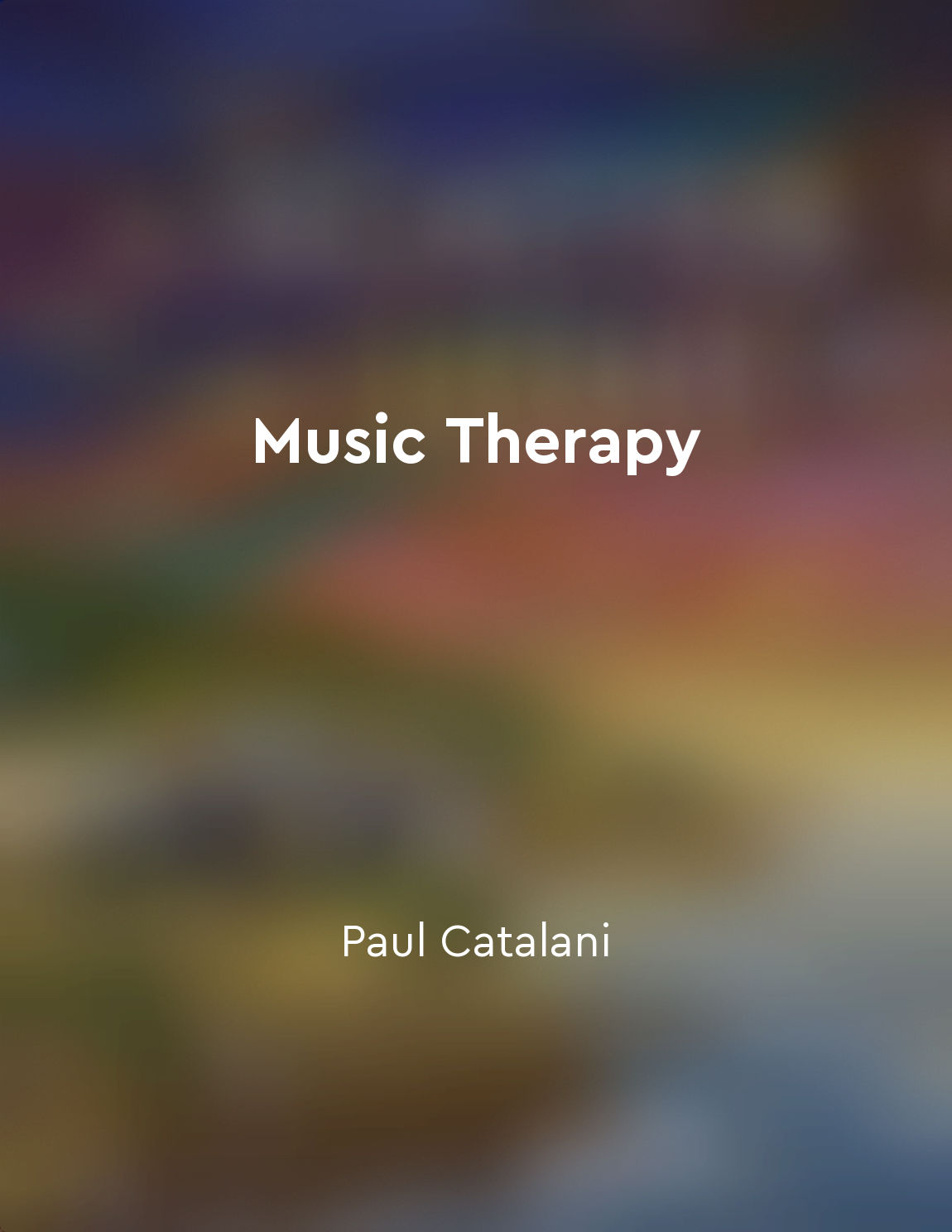Promoting selfexpression through musical activities from "summary" of Music Therapy by Paul Catalani
The core of music therapy lies in the belief that through engaging in musical activities, individuals can access and express their innermost thoughts, emotions, and experiences. By participating in musical experiences facilitated by a trained music therapist, clients are provided with a safe and nurturing space to explore and communicate their feelings in a non-verbal manner. Musical activities such as improvisation, songwriting, and listening to music are utilized as tools for self-expression and communication. These activities allow clients to delve into their subconscious, access their emotions, and convey them in a way that may not be possible through spoken language. Through music, individuals can express complex emotions, memories, and experiences that they may find difficult to articulate verbally. Music therapy sessions are structured in a way that encourages clients to actively engage in the music-making process. Whether through playing instruments, singing, or moving to music, clients are given the opportunity to explore various ways of expressing themselves through sound. The music therapist acts as a guide, supporting and encouraging clients to experiment with different musical techniques and styles to find the mode of expression that resonates with them. In addition to promoting self-expression, engaging in musical activities can also help clients develop a sense of agency and empowerment. By actively participating in creating music, clients can experience a sense of control over their environment and their emotions. This sense of agency can be particularly empowering for individuals who may feel limited in their ability to express themselves due to physical, emotional, or cognitive challenges.- The concept of promoting self-expression through musical activities in music therapy emphasizes the transformative power of music as a medium for communication and emotional exploration. Through engaging in musical experiences facilitated by a trained music therapist, individuals can tap into their inner world, express themselves authentically, and ultimately experience healing and growth.
Similar Posts

The importance of compassionate and personalized care for patients
In the realm of medicine and healthcare, there is a profound need for compassionate and personalized care for patients. This co...
Spoonface's parents struggle with their own issues
Spoonface's parents are not exempt from their own struggles and challenges. Mrs. Spud, Spoonface's mother, battles with her own...
Pressure to maintain image takes a toll
Maintaining a certain image can be exhausting, especially when the whole world is watching your every move. The pressure to alw...
Trust the healing process
Healing is a complex and often challenging process that requires patience and trust. It is natural to want to rush through the ...

Memories of past adventures
In my mind, the memories of past adventures are like old photographs tucked away in a dusty shoebox. Each image holds a piece o...
Longstanding tradition in British theatre
The concept of incorporating song into British theatre productions is deeply ingrained in the history of the art form. Over the...

Forgiveness, both of oneself and others, is freeing
Forgiveness is a powerful act that can liberate us from the burdens of anger, resentment, and pain. When we forgive others for ...
Find solace in the peacefulness of nature
There is something truly magical about being surrounded by the beauty of nature. The peacefulness that comes with it is like no...
Embrace the mindbody connection for vitality
The mind and body are not separate entities; they are deeply interconnected, influencing each other in countless ways. Our thou...
Discovering language through touch
In those early days of my childhood, language was a mystery to me. I could feel the vibrations of sounds as they passed through...


